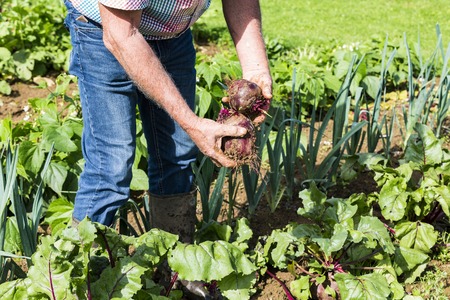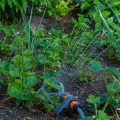1. Understanding Raccoon Behavior
Raccoons are intelligent, adaptable creatures that are common visitors in many parts of the United States. While they may look cute and harmless, these nocturnal animals can become a real nuisance for home gardeners. Before you can effectively deter raccoons from your garden without harming them or other wildlife, it’s important to understand what drives their behavior and why your garden might be so attractive to them.
What Attracts Raccoons to Your Garden?
Raccoons are opportunistic feeders with a keen sense of smell. They are always on the lookout for easy meals, and home gardens often provide exactly that. From ripe fruits and vegetables to compost piles and pet food left outside, there are several things that can draw raccoons into your yard.
Common Attractants for Raccoons
| Attractant | Description |
|---|---|
| Fruit-bearing plants | Raccoons love sweet fruits like berries, apples, and peaches. |
| Vegetable gardens | Corn, tomatoes, and squash are favorites among raccoons. |
| Compost bins | Food scraps in open compost bins offer an easy snack. |
| Pet food | Leftover dog or cat food outside will attract raccoons quickly. |
| Trash cans | Poorly sealed garbage is a buffet for raccoons. |
Why Raccoons Are a Challenge for Gardeners
Raccoons are more than just curious—theyre clever. They have nimble paws that allow them to open containers, climb fences, and even turn doorknobs. Their intelligence makes traditional deterrents like simple fences or scarecrows less effective over time. Plus, because they’re active at night, many gardeners don’t realize they’ve had a visitor until the damage is already done.
Key Traits That Make Raccoons Tough to Deter
- Nocturnal: Most activity happens at night when youre not watching.
- Climbers: Fences aren’t always enough—they can scale them easily.
- Clever problem-solvers: They can figure out how to open containers or bypass barriers.
- Sensitive noses: They can detect smells from far away and follow them right into your garden.
The First Step: Awareness
If you want to keep raccoons away without causing harm, the first step is knowing what theyre after and how they operate. With this understanding, you’ll be better prepared to make smart changes in your garden that discourage visits without disrupting the local ecosystem.
2. Eliminating Food Sources and Attractions
Raccoons are highly intelligent and resourceful animals, and one of the main reasons they venture into residential gardens is the easy availability of food. To keep raccoons away without harming them or other wildlife, its essential to remove or secure anything that might attract them in the first place.
Secure Your Trash Bins
Garbage cans are a buffet for raccoons. Use animal-proof lids or bungee cords to keep lids tightly closed. Store bins in a garage or shed if possible, especially on the night before trash pickup.
Keep Pet Food Indoors
If you feed pets outside, it’s like setting a dinner table for raccoons too. Always bring pet food indoors after feeding time. If your pets need to eat outside, stay with them while they eat and remove any leftovers right away.
Manage Compost Piles Carefully
Compost piles can smell delicious to a hungry raccoon. Avoid putting meat, dairy, or oily foods in your compost. Use enclosed compost bins with secure lids rather than open piles.
Remove Fallen Fruit and Bird Seed
Fruit trees and bird feeders can unintentionally invite raccoons. Pick up fallen fruit daily and consider using squirrel-proof bird feeders that limit seed spillage.
Common Raccoon Food Sources & How to Secure Them
| Food Source | Why It Attracts Raccoons | How to Secure It |
|---|---|---|
| Trash Cans | Smell of food scraps draws raccoons in | Use locking lids; store indoors overnight |
| Pet Food | Easy and nutritious meal source | Feed pets indoors; remove leftovers immediately |
| Compost Piles | Contains food waste like fruit peels and bread | Use sealed compost bins; avoid meat/dairy scraps |
| Fallen Fruit/Bird Seed | Sugar-rich fruits and seeds are irresistible | Pick up fruit daily; use no-waste bird feeders |
A Few Extra Tips:
- Clean BBQ grills: Wipe down grills after use—leftover grease can attract raccoons from afar.
- Avoid feeding wildlife: Leaving out snacks for squirrels or birds can also draw raccoons.
- Seal doggy doors at night: Hungry raccoons have been known to sneak inside homes!
By eliminating these common attractions, youre making your garden less appealing to raccoons—and helping protect local wildlife in a humane way.
![]()
3. Creating Physical Barriers
One of the most effective and humane ways to deter raccoons from your garden is by setting up physical barriers. These methods don’t harm wildlife and help keep your plants safe from curious critters. Here are some common non-lethal options you can try at home.
Fencing
Installing a fence around your garden is a great first step. To stop raccoons, the fence needs to be at least 4 feet high and made of materials they can’t easily climb, like hardware cloth or welded wire. For extra protection, bend the top outward at a 90-degree angle to make it harder for them to scale.
Recommended Fence Features:
| Feature | Description |
|---|---|
| Height | At least 4 feet tall |
| Material | Hardware cloth or welded wire |
| Top Design | Bent outward to prevent climbing |
| Underground Extension | Bury 6–12 inches underground to stop digging |
Garden Netting
If fencing isn’t practical, consider using garden netting. Lightweight mesh or bird netting can be draped over individual plants or entire beds. Make sure its secured tightly so raccoons cant slip underneath or pull it away.
Tips for Using Netting:
- Choose durable, UV-resistant netting for outdoor use.
- Anchor the edges with garden staples or rocks.
- Check regularly for tears or loose spots.
Motion-Activated Deterrents
Raccoons are nocturnal and easily startled. Motion-activated devices like sprinklers, lights, or noise makers can scare them off without causing harm. These tools are especially helpful during nighttime when raccoons are most active.
Popular Motion-Activated Options:
| Device Type | Description | Best Use Time |
|---|---|---|
| Sprinklers | Shoots water when motion is detected | Nighttime & early morning |
| Lights | Flashing LED lights startle animals in the dark | Nighttime only |
| Noisemakers | Makes sudden sounds (like alarms) | Dusk to dawn hours |
Using these physical barriers helps create a safe space for your garden while respecting local wildlife. With a bit of setup and maintenance, you can enjoy your harvest without unwanted visitors digging through your hard work.
4. Using Natural and Humane Deterrents
If youre looking to keep raccoons out of your garden without harming them or other wildlife, natural and humane deterrents are a great way to go. These options are safe for the environment, pets, and beneficial animals in your yard. Lets explore some effective choices you can try.
Predator Scents
Raccoons are naturally cautious of predators like coyotes and foxes. You can use commercially available predator urine products (usually sold in garden centers or online) to mimic the presence of these animals. Just sprinkle the scent around the perimeter of your garden or near known raccoon entry points.
How to Use:
- Apply during dry weather for best results
- Reapply every few days or after it rains
- Use gloves when handling predator scent products
Homemade Repellents
You can make simple and safe repellents at home using ingredients from your kitchen. Raccoons dislike strong smells like garlic, vinegar, ammonia, and hot peppers.
Easy DIY Raccoon Repellent Recipe:
| Ingredient | Amount |
|---|---|
| Water | 1 quart (4 cups) |
| Crushed garlic cloves | 2-3 cloves |
| Cayenne pepper | 1 tablespoon |
| Dish soap (optional) | A few drops |
Instructions: Mix all ingredients together and let sit overnight. Strain and pour into a spray bottle. Spray around your garden’s edges, trash bins, or other raccoon hotspots. Avoid spraying directly on edible plants.
Scent-Based Deterrents
Some store-bought deterrents use essential oils or natural fragrances that raccoons find unpleasant. Look for products labeled as safe for wildlife and non-toxic. Common scents that work include peppermint oil, eucalyptus, and citronella.
Tips for Using Scent-Based Deterrents:
- Place soaked cotton balls in small containers around your garden
- Avoid placing scents too close to pollinator-friendly plants
- Refresh scents every few days for continued effectiveness
By using these eco-friendly options, you can protect your garden while keeping raccoons at bay—without causing harm to them or any other critters who call your backyard home.
5. Establishing Sustainable Long-Term Habits
Keeping raccoons out of your garden isnt a one-time fix—its all about creating habits that help maintain a safe and wildlife-friendly space for the long haul. With some regular upkeep and smart neighborhood strategies, you can make your garden less appealing to raccoons while still being kind to other animals.
Keep Your Garden Clean and Tidy
Raccoons are scavengers, so any leftover food, fallen fruit, or unsecured trash can quickly attract them. Make it a habit to:
- Pick up fallen fruits or vegetables daily
- Clean up compost piles and keep lids secure
- Store garbage in animal-proof containers
- Rinse recyclables before disposal
Use Motion-Activated Tools
Investing in motion-sensor lights or sprinklers is a smart long-term strategy. These tools startle raccoons without hurting them and can be reused year after year. Just remember to check batteries or solar panels regularly to keep them working effectively.
Create a Routine Maintenance Schedule
Setting a routine helps you stay consistent with prevention efforts. Heres a simple example you can follow:
| Task | Frequency |
|---|---|
| Inspect fences and barriers for damage | Weekly |
| Clean up fallen produce and trash | Daily |
| Check motion-deterrent devices | Monthly |
| Trim overgrown vegetation near your home | Bi-weekly |
Work with Your Neighbors
If youre doing everything right but your neighbors are unintentionally attracting raccoons, it can undo your hard work. Talk with nearby residents about keeping pet food indoors, securing garbage bins, and sealing crawl spaces. A community-wide effort makes a big difference.
Stay Informed and Flexible
Raccoon behavior can change depending on the season or available food sources. Keep learning about their habits and adjust your strategies as needed. What works in summer may need tweaking in winter. Staying flexible helps you stay ahead.
A Little Effort Goes a Long Way
By building these habits into your regular routine, youll create an environment thats less inviting to raccoons while still supporting healthy local wildlife. Its not just about solving a problem—its about preventing one from coming back.


